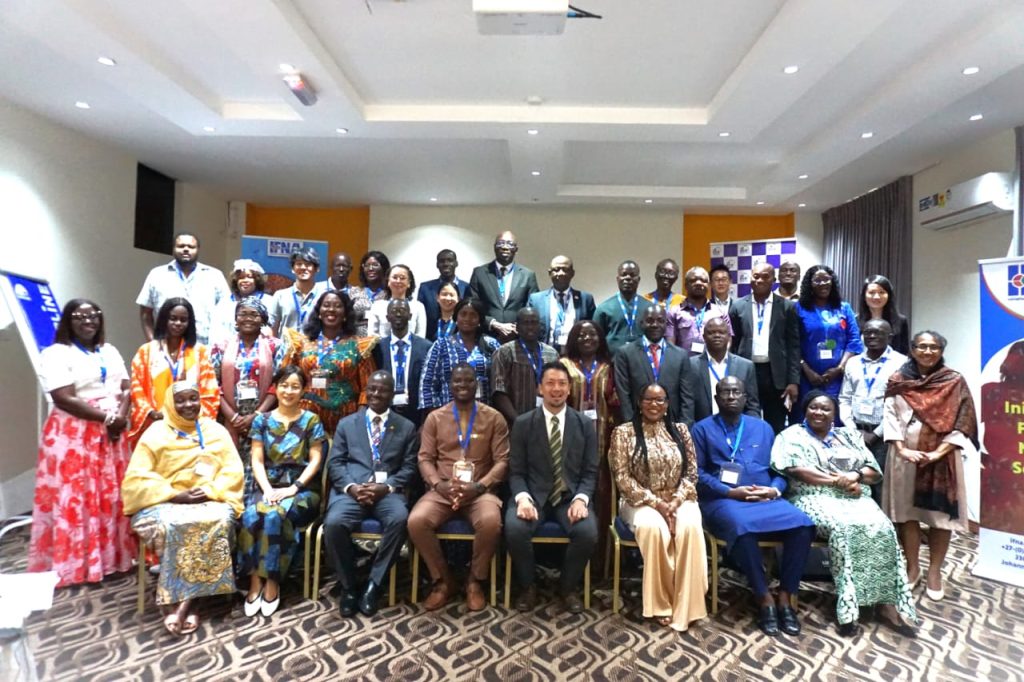The Initiative for Food and Nutrition Security in Africa (IFNA), in partnership with the Economic Community of West African States (ECOWAS), is pleased to announce a pivotal Regional Training designed to bolster national technical capacities for food security and nutrition within ECOWAS Member States. The training was held from July 1-3, 2025, at the Airport View Hotel in Accra, Ghana.
This intensive three-day program aimed to equip national technical officials with advanced knowledge and practical tools to address the complex challenges of nutrition across various sectors. Building on IFNA’s established framework, which was jointly launched by the African Union Development Agency-NEPAD (AUDA-NEPAD) and Japan International Cooperation Agency (JICA) in 2016, the training emphasized two key approaches: the Nutrition-focused Food Access Improvement Approach (NFA) and the Multi-sectoral Approach (MSA).
The NFA focuses on identifying dietary gaps through assessment and recommending food-based solutions, while the MSA provides a comprehensive examination of multi-sectoral efforts to understand and address the underlying causes of malnutrition. Participants gained critical insights into developing a Multidimensional Action Plan for implementation, informed by data and robust analytical tools.
Key Highlights from the Opening Session
In the opening address, the Senior Representative of JICA Ghana, in the person of Mr. Ryotaro Oda, underscored the urgency of collaborative action: “Despite global efforts, malnutrition remains a critical challenge in Africa. Climate shocks – from droughts to floods – alongside conflicts in Ukraine and Gaza, threaten vulnerable communities. Through IFNA, we empower nations to transform policies into tangible actions using multisectoral strategies.”
Training Objectives and Outcomes
Aligned with the UN Sustainable Development Goals (SDG) 2 and Africa’s CAADP framework, the workshop aimed at:
* Understanding key nutrition issues within the context of CAADP, SDGs, and national commitments.
* Gaining practical knowledge of relevant investments, intervention measures, and tools.
* Learning about the concept and good practices of NFA and MSA.
* Identifying priority nutrition challenges and developing Multilateral Action Plans with clear accountability mechanisms.
Upon completion of the training, participants deepened their understanding of nutrition issues, acquired practical knowledge of intervention tools, and got better positioned to translate national and regional nutrition targets into actionable strategies. An IFNA regional consultant will further collaborate with country teams to develop project concepts and identify funding opportunities.
About IFNA:
The Initiative for Food and Nutrition Security in Africa (IFNA) was jointly launched by AUDA-NEPAD and JICA in 2016 to support better nutrition in Africa through a multi-sectoral approach. IFNA assists national governments by building the capacity of government technical staff involved in development of food security and nutrition policy and program and their implementation.
About ECOWAS:
The Economic Community of West African States (ECOWAS) is a regional political and economic union of fifteen countries located in West Africa. Its mission is to promote economic integration in all fields of activity of the member countries.
